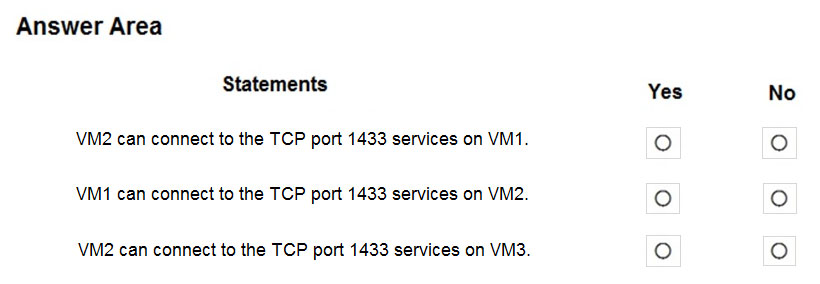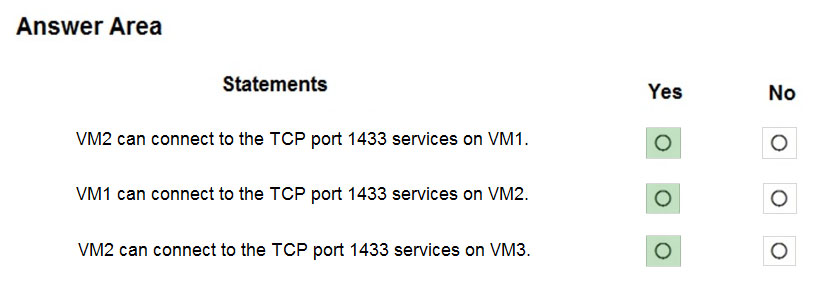Question 144 of 247 from exam AZ-104: Microsoft Azure Administrator
Question
HOTSPOT -
You have a virtual network named VNET1 that contains the subnets shown in the following table:

You have two Azure virtual machines that have the network configurations shown in the following table:

For NSG1, you create the inbound security rule shown in the following table:

For NSG2, you create the inbound security rule shown in the following table:

For each of the following statements, select Yes if the statement is true. Otherwise, select No.
NOTE: Each correct selection is worth one point.
Hot Area:

Explanations

Box 1: Yes -
The inbound security rule for NSG1 allows TCP port 1433 from 10.10.2.0/24 (or Subnet2 where VM2 and VM3 are located) to 10.10.1.0/24 (or Subnet1 where
VM1 is located) while the inbound security rule for NSG2 blocks TCP port 1433 from 10.10.2.5 (or VM2) to 10.10.1.5 (or VM1). However, the NSG1 rule has a higher priority (or lower value) than the NSG2 rule.
Box 2: Yes -
No rule explicitly blocks communication from VM1. The default rules, which allow communication, are thus applied.
Box 3: Yes -
No rule explicitly blocks communication between VM2 and VM3 which are both on Subnet2. The default rules, which allow communication, are thus applied.
https://docs.microsoft.com/en-us/azure/virtual-network/security-overview